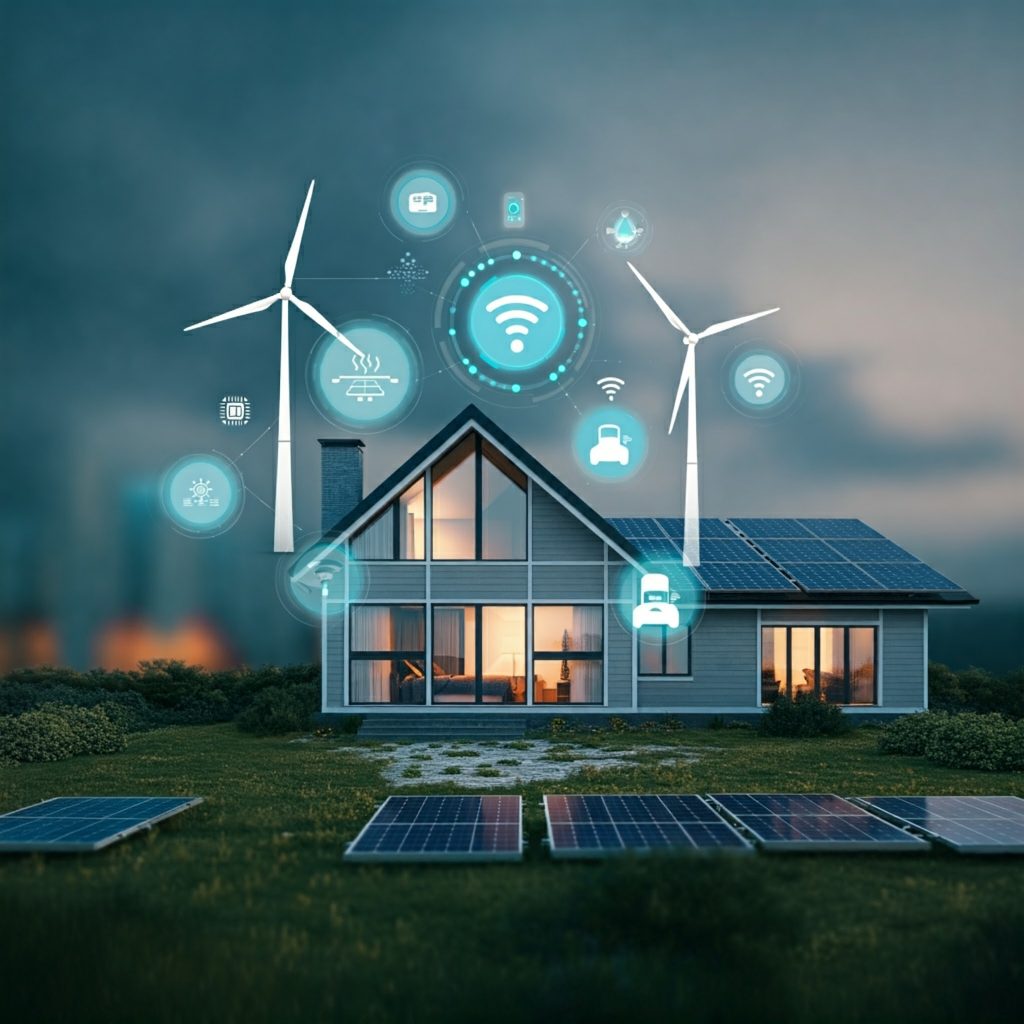The Future of Smart Homes: Insights from Industry Experts
The smart home industry is undergoing a rapid transformation, fueled by groundbreaking technologies and innovations that are reshaping the way we live. To delve deeper into this evolving landscape and explore the pivotal role of smart homes in energy efficiency, we assembled a panel of esteemed industry experts. This article distills the key insights from their engaging discussion, encompassing their predictions, concerns, and recommendations for the future of connected living.
Meet the Experts:
- Dr. Jane Smith: A renowned Professor of Electrical Engineering and a leading authority on smart home technology, Dr. Smith brings a wealth of academic knowledge and practical experience to the discussion.
- John Doe: As the CEO of a prominent smart home technology company, John Doe offers a unique perspective on the industry’s trajectory, market trends, and consumer demands.
- Emily Brown: A passionate sustainability consultant and advocate, Emily Brown champions the integration of eco-friendly practices and technologies in the smart home sector.
Key Takeaways from the Panel Discussion:
- The Rise of AI in Smart Homes: The panel unanimously concurred that Artificial Intelligence (AI) will be instrumental in shaping the future of smart homes. AI’s ability to analyze data, predict user behavior, and automate tasks will optimize energy consumption, personalize comfort settings, and enhance the overall living experience. Imagine a home that anticipates your needs, adjusting the lighting, temperature, and entertainment systems seamlessly based on your preferences and daily routines.
- Harnessing Renewable Energy: The experts emphasized the critical need to integrate smart homes with renewable energy sources. By connecting solar panels, wind turbines, and battery storage systems, homeowners can reduce their carbon footprint, decrease reliance on traditional energy grids, and create a more sustainable and resilient energy infrastructure. This integration will not only benefit individual households but also contribute to a cleaner and more environmentally conscious future.
- Addressing Data Privacy and Security Concerns: The panel acknowledged the growing concerns surrounding data privacy and security in smart homes. With an increasing number of connected devices collecting and transmitting personal information, it is crucial to implement robust security measures and ensure user transparency and control over data sharing. The experts stressed the importance of industry-wide collaboration to establish clear guidelines and best practices for data protection.
- Overcoming Interoperability Challenges: The lack of seamless interoperability between devices from different manufacturers remains a significant hurdle for widespread smart home adoption. The panel highlighted the need for greater industry collaboration and the adoption of open standards, such as Matter, to create a more cohesive and user-friendly smart home ecosystem. This will enable devices from various brands to communicate and work together seamlessly, empowering consumers to build a truly connected and personalized smart home environment.
- Promoting Consumer Education and Adoption: The experts underscored the importance of educating consumers about the benefits, potential, and responsible use of smart home technology. By addressing common concerns, demystifying complex features, and making these solutions more accessible and affordable, the industry can encourage wider adoption and unlock the full potential of connected living.

Expert Predictions for the Future of Smart Homes:
- Net-Zero Energy Homes: The panel envisions a significant rise in net-zero energy homes, where energy consumption is balanced by renewable energy generation. Smart home technology will play a crucial role in optimizing energy usage, minimizing waste, and achieving energy independence.
- Personalized and Proactive Living: Smart homes will become increasingly personalized and proactive, anticipating user needs and adjusting settings automatically for optimal comfort, convenience, and efficiency. Imagine a home that learns your preferences and adapts to your lifestyle, creating a truly personalized living experience.
- Integration with Smart Cities: The experts foresee smart homes becoming integral components of smart city initiatives, contributing to a more sustainable, efficient, and connected urban environment. By integrating with city infrastructure and services, smart homes can optimize resource management, reduce traffic congestion, and enhance public safety.
- Prioritizing Health and Wellness: The integration of smart home technology with health and wellness solutions will continue to expand, offering personalized monitoring, preventive care, and support for a healthier lifestyle. This includes features like remote patient monitoring, fall detection, medication reminders, and air quality control, empowering individuals to take control of their well-being.
Conclusion:
The expert panel discussion provided invaluable insights into the future of smart homes and their profound impact on energy efficiency and sustainable living. As AI, renewable energy integration, and consumer awareness continue to shape the industry, we can anticipate exciting advancements that will revolutionize our homes and lifestyles.
Join the Conversation:
- Share your thoughts on the expert panel discussion and the future of smart homes in the comments section below.
- Stay informed about the latest trends and innovations in the smart home industry by subscribing to our newsletter and following us on social media.
- Embrace the possibilities of smart home technology and create a living space that is both innovative and sustainable.

8 thoughts on “Expert Panel Discussion: The Future of Smart Homes and Energy Efficiency”
Comments are closed.